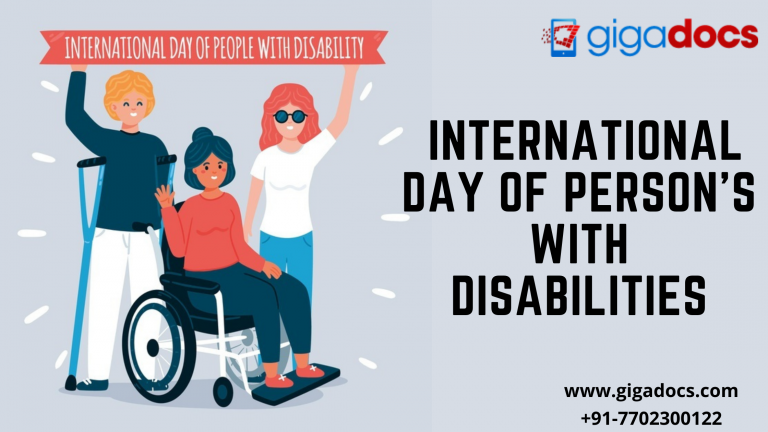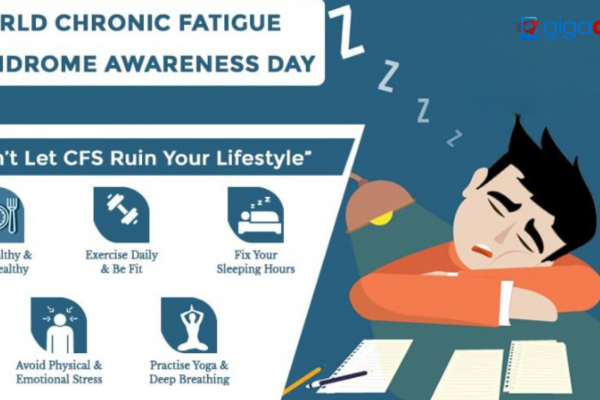Disabled people must be included in healthcare systems if we want to respect human rights, global sustainability, and safety and security.
Every seventh person on this planet — a total of more than 1 billion people – has some disability.
People living with disabilities are often overlooked, especially when it comes to inclusive healthcare in times of crisis like the covid pandemic with new mutations emerging which has made people with disabilities one of the most excluded groups in our society. It is the disabled people who have been among the worst hit in terms of fatalities.
International Day of Person’s with Disabilities
This year’s International Day of People with Disabilities, on December 3, aims to emphasize that disabled people are among the most vulnerable groups amid the pandemic. In a world where marginalization, discrimination, vulnerability, and exploitation are everyday aspects for many, the increased risk of limited healthcare accessibility magnifies by limited routine health care.
This includes severe social isolation, ineffective public health system availability, lack of access to health treatments, poor rehabilitation programmes, and a lack of emergency readiness for people with special needs. This annual International Day of Persons with Disabilities commemorates the challenges, barriers, and possibilities that individuals with disabilities face in the face of a global epidemic with the theme “Fighting for Rights in the Post-COVID Era.”
Here are some things to keep in mind about living with a disability during COVID-19 and beyond-
- Increase in severe symptoms
People with disabilities are more likely to develop subsequent illnesses and comorbidities such as heart disease, obesity, lung disease, diabetes, all of which can be deadly when combined with the COVID-19 virus. People with disabilities, although being more vulnerable, have a more difficult time receiving health care. Even before the epidemic, one in every three disabled could not even afford healthcare. Up to 42% of people in some nations agreed their accessibility to primary healthcare to be bad in the pandemic.
- Living in institutions raises the risk of acquiring and dying from COVID-19
Care homes, where elderly disabled people often make up a large portion of residents, were on the frontlines of the pandemic. These care homes reported higher rates of infections and COVID-19-related death rates ranging from 19 per cent to 72 per cent in countries where official data was available.
- Discrimination in terms of access to healthcare and life-saving operations
In some locations, particularly those hardest impacted by the pandemic, medical personnel are forced to make heartbreaking decisions about who will receive minimal life-saving services, like intensive care beds and ventilators. Too often, these judgments are made based on prejudicial criteria, like age or beliefs about the quality or value of life with disability, rather than the patient’s overall diagnosis
- The more general COVID-19 crisis has a greater impact on those with disabilities.
Despite the pandemic’s revolutionary rise in remote employment, education, and entertainment, disabled people are losing jobs, the right to education, and support services at alarming rates compared with the general population.
For people with disabilities getting inclusive health care appointments can be challenging in terms of getting to a healthcare facility or accessing quality healthcare. Telemedicine or teleconsultation proves helpful in facilitating quality inclusive healthcare to people with disabilities. Here is how-
How can Telemedicine Help?
Telemedicine has grown at a rapid pace in recent years. New technologies are being developed for application in a wide range of illnesses. Telehealth appointments potentially alleviate many of the challenges faced by people with disabilities and increase their access to health care.
Telehealth improves adherence to self-care practices for individuals with severe functional disabilities by allowing doctors and specialists to demonstrate self-care techniques to patients with many opportunities for follow-up and educating family caregivers. Furthermore, virtual consultation helps children with intellectual disabilities feel cared for in a less stressful, less detrimental setting.
To make telehealth accessible and functional for everyone, Gigadocs offers digital healthcare support through its Gigadocs healthcare app, which lets people with disabilities consult specialist doctors at their convenience from the comfort and privacy of their home without going anywhere.
Gigadocs Digital Healthcare app can be downloaded from-
- IOS App – apple.co/2W2iG4V
- Android App – bit.ly/33AQoRC
To know more and schedule a Virtual Consultation demo, e-mail at info@gigadocs.com




